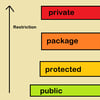Ensuring software performs impeccably across various browsers and devices in the ever-evolving digital era is paramount. This is where software testing tools come into the limelight, providing the essential service of automating and streamlining the testing process to validate that software operates without a hitch in every possible scenario. The benefits of utilizing software testing tools are multi-faceted, ranging from time-saving via automation to ensuring a seamless user experience across all platforms.
What are Software Testing Tools?
Software testing tools are specialized applications or frameworks used by testers and developers to ensure software or applications’ quality. These tools assist in performing various testing activities, such as identifying issues, evaluating system performance, and ensuring the software behaves as expected in all possible environments and scenarios. Some widely recognized software testing tools include Selenium, Apache JMeter, and, notably, BrowserStack.
Enhanced Benefits of Leveraging Software testing Tools
Ensuring software operates seamlessly and effectively is indispensable in safeguarding user satisfaction and loyalty. Software testing tools play a pivotal role in extending an array of advantages to developers, testers, and enterprises by bringing automation and accuracy to the testing process.
- Accuracy and Reliability: Software testing tools offer precision that is nearly impossible to achieve through manual testing. Automated tests execute the same steps with unerring accuracy, avoiding the pitfalls of human error and ensuring that the software is rigorously validated under consistent conditions every time.
- Efficiency and Time Management: Automation enables testing to be conducted swiftly and concurrently across various devices and environments, thus significantly reducing the time to market for software products. This allows for more frequent releases and updates, enabling organizations to stay competitive and responsive to market demands.
- Cost-Effectiveness: While there is an initial investment in software testing tools, the savings derived from reduced testing time, early detection of issues, and mitigation of failure risks often outweigh the initial outlay. Automating repetitive but necessary testing tasks allows human testers to focus on more high-value work, driving better utilization of resources and capital.
- Scalability: Automated testing tools can effortlessly adapt to varying scales of testing requirements, whether deploying code changes for small sections of an application or launching extensive updates for complex software. This ability to scale ensures that the software testing process remains robust and relevant even as the software and user base evolve.
- Comprehensive Testing: Software testing tools enable exhaustive testing, ensuring that every aspect of the software is validated under many scenarios, including edge cases that might be overlooked in manual testing. This ensures comprehensive coverage and robust testing, ascertaining that every potential issue is identified and addressed.
- Regression Testing and Continuous Development: In the current age of continuous development and delivery, automated testing tools facilitate easy regression testing. Whenever a change is made, the tool can quickly identify and address unintended consequences or disruptions, ensuring continuous development does not compromise software quality.
- Quality Assurance: The assurance of quality is intrinsic to software testing tools. They ensure that every release meets a defined quality standard, reinforcing user trust and satisfaction. The consistent performance, minimized bugs, and optimized functionality lead to a superior user experience, enhancing the reputation and reliability of the product and the brand.
- Global and Local Testing: With globalized testing, software testing tools facilitate testing in varied locations, under various network conditions, and across different devices, providing a truly global testing environment. This ensures that software delivers consistent and optimal performance for all users, regardless of geographical and technological variations.
- Performance Testing: Understanding how software behaves under different conditions and loads is vital. Software testing tools enable performance testing, ensuring that the software can handle expected user loads, peak times, and more without degradation in performance and user experience.
- Enhanced Security: In an age where data breaches and cyber-attacks are rampant, ensuring the security of applications and data is paramount. Automated testing tools can rigorously test security protocols and defenses, ensuring that software is functional and secure against potential threats.
Top Alternatives to BrowserStack
Given the significance of robust testing, opting for a tool that aligns with your organizational requirements is vital. While BrowserStack is a known player in the realm of software testing, exploring its alternatives to discern a more fitting option for your specific needs is prudent.
HeadSpin
HeadSpin, with its comprehensive device cloud, offers a considerable range of testing solutions that are revered for enabling seamless user experiences across multiple platforms. The platform excels in providing real-world, actionable insights that aid in optimizing performance across every network and device. With a global device infrastructure and a feature-rich platform, HeadSpin stands out as a compelling alternative, ensuring accurate and efficient testing in real-world conditions.Sauce Labs
Sauce Labs offers a cloud-based testing platform, allowing users to run tests in the cloud on various browsers and operating systems, eradicating the need for internal labs and reducing infrastructure costs. Sauce Labs is recognized for its secure testing, wide device, and browser coverage and alignment with DevOps methodologies, facilitating continuous testing and delivery.LambdaTest
LambdaTest is renowned for its cloud-based cross-browser testing capabilities, enabling testing on 2,000+ browsers and operating system environments. It’s user-friendly, offers robust support, and many integrations, making it a solid choice for those looking to ensure their web applications function flawlessly across all browsers and devices.CrossBrowserTesting
CrossBrowserTesting ensures that software delivers a consistent user experience for all users, regardless of the technology utilized, with a focus on testing websites and mobile applications across various browsers, operating systems, and devices. It supports automated, visual, and manual testing, catering to various testing requirements.Kobiton
Kobiton takes device testing to the next level by offering a platform that supports real and virtual testing environments. With a focus on mobile device testing, it allows users to test on real devices in the cloud, ensuring that applications run smoothly across all device types and networks.
Conclusion
Opting for a software testing tool that synchronizes with your specific needs is crucial in maintaining your software or application’s quality, reliability, and user satisfaction. Each alternative to BrowserStack has unique features and capabilities, accommodating diverse testing needs and organizational requirements.
Whether you are inclined towards the globally-equipped HeadSpin or the flexible LambdaTest, ensuring your choice aligns with your enterprise test automation needs and other testing prerequisites is paramount. Exploring and evaluating each alternative against your unique use case ensures that your software testing is efficient and effective, safeguarding impeccable software performance and a stellar user experience.
Article resource: This article was originally published on https://www.technology.org/2024/03/19/unveiling-the-pinnacle-alternatives-to-browserstack-for-efficient-software-testing/







Top comments (0)